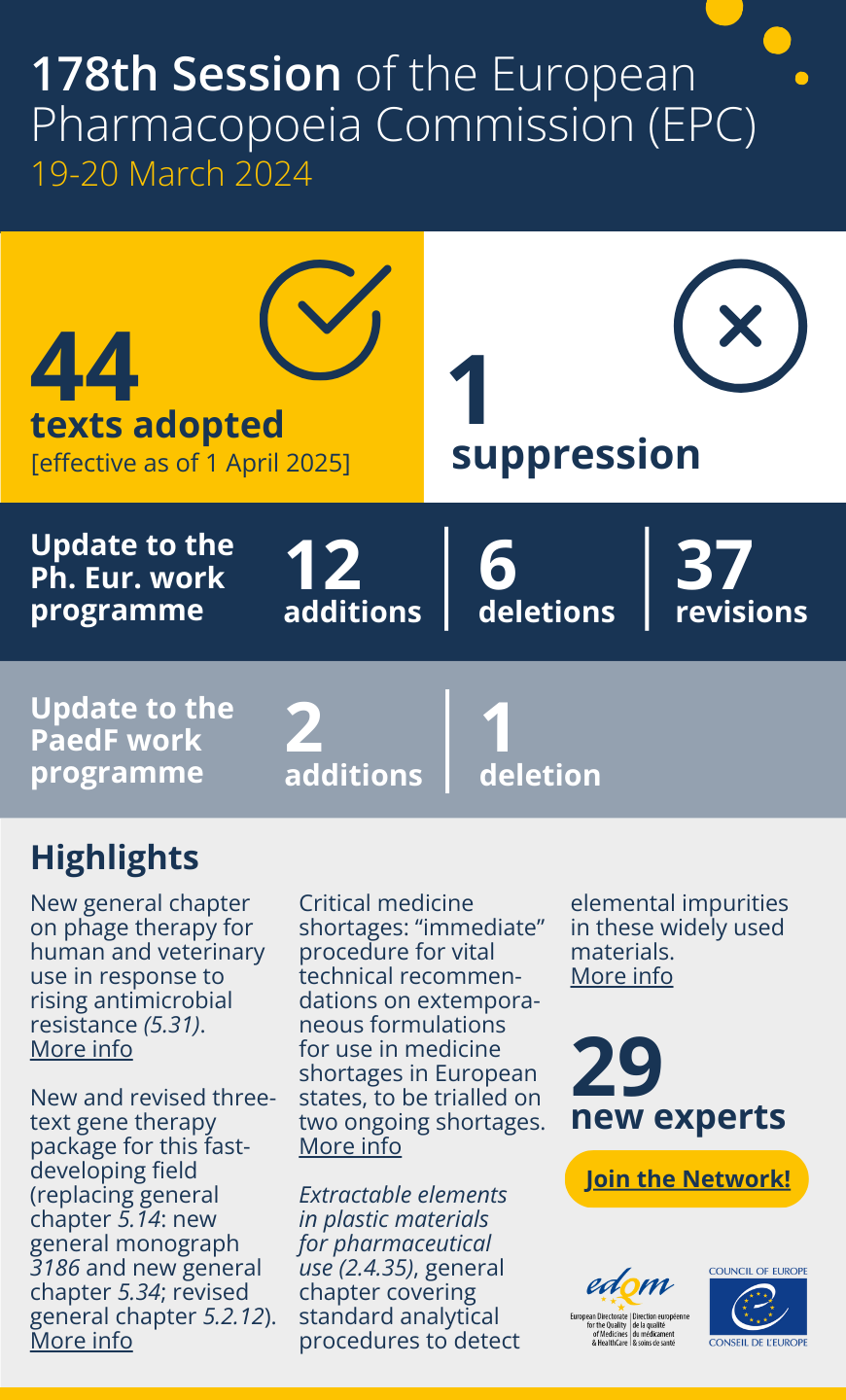The task of the European Drug Shortages Formulary Working Party (EDSForm WP), created at the end of November 2023, is to define both short-term and long-term actions aimed at mitigating the negative impact of medicine shortages on public health.
Short-term actions involve compiling technical recommendations on the preparation of unlicensed pharmaceutical preparations that could be used during ongoing shortages of licensed medicinal products.
Long-term actions consist in the prospective elaboration of monographs describing standardised unlicensed preparations that can be used as a temporary replacement for the licensed product during a shortage, and their subsequent compilation in the European Drug Shortages Formulary.
Medicine shortages are difficult to anticipate and can generate an immediate unmet therapeutic need. It is therefore important for the EDSForm WP to deliver technical recommendations as rapidly as possible in order to help clinicians and pharmacists find the best available therapeutic option for their patients. A standard monograph elaboration process of the type used for the European Paediatric Formulary is not fit for this purpose.
To this end, at its 178th Session (19-20 March 2024), the European Pharmacopoeia Commission (EPC) approved a dedicated “immediate” workflow proposed by the new EDSForm WP that will allow the experts of the WP to produce – rapidly – technical recommendations in response to an ongoing shortage. As part of this immediate workflow, the decision to work on new items will be sought from the EPC by correspondence, with a short deadline. The experts’ resulting technical recommendation will then be published on a dedicated webpage of the EDQM website, to be archived once the medicine shortage is over.
The EPC decided to use two ongoing critical medicine shortages (paediatric forms of aprepitant and amoxicillin) to trial and refine this immediate workflow.
The EDSform WP has already started working on technical recommendations to help mitigate the negative impact of these shortages on public health. The publication of the recommendations – intended to provide clinicians and pharmacists with a convenient and readily available source of relevant information – is imminent.
See also:





